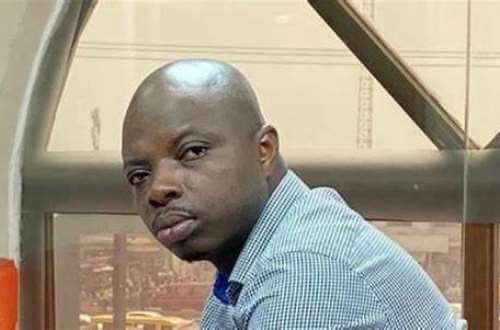Kwame Baffoe Abronye, the Bono Regional Chairman of the New Patriotic Party (NPP), was taken into custody by the Ghana Police Service on Monday, September 8th, on charges of breaching the peace and publishing false news. The arrest followed an invitation from the Criminal Investigations Department (CID) where Abronye voluntarily presented himself for questioning. After a two-hour interrogation, he was formally charged and detained. The incident has sparked controversy and raised concerns about freedom of speech and potential political motivations behind the arrest, especially given Abronye’s known outspoken nature and criticism of the current administration.
The charges against Abronye appear to stem from his public criticism of the Inspector General of Police, Christian Tetteh Yohonu. During the interrogation, a video recording of Abronye’s critical remarks regarding the IGP was reportedly played, and this video seems to form the central evidence supporting the charges. The nature of the criticism and the specific allegations made by Abronye have not been fully disclosed, but the connection between his statements and the subsequent arrest suggests a potential link between his political expression and the legal action taken against him.
Following his interrogation at the CID headquarters, Abronye’s legal counsel was informed that his client was being transferred to the National Intelligence Bureau (NIB). However, upon arrival at the NIB, Abronye’s lawyer discovered that he had not been brought there. The whereabouts of the NPP regional chairman remained unknown for a significant period, adding another layer of complexity to the already contentious situation. This confusion and lack of clear information regarding Abronye’s location raise concerns about due process and transparency in the handling of the case.
The arrest of Abronye has ignited a debate regarding the boundaries of free speech and the potential for political influence in law enforcement. While authorities have cited breach of peace and publication of false news as the grounds for detention, some observers have questioned whether the arrest is a direct consequence of Abronye’s vocal criticism of the IGP and, by extension, the government. This perspective raises the possibility of a politically motivated action intended to silence dissent or curb criticism of those in power.
The case also highlights the ongoing tension between freedom of expression and responsible public discourse. While freedom of speech is a fundamental right, there are limits to its exercise, particularly when it comes to inciting violence or spreading misinformation. The question remains whether Abronye’s statements crossed the line from legitimate criticism into the realm of actionable offenses. Determining this requires a careful evaluation of the content and context of his remarks, as well as the potential impact they could have on public order and safety.
The arrest of Kwame Baffoe Abronye underscores the delicate balance between protecting freedom of speech and maintaining social order. The case is likely to be closely scrutinized as it unfolds, with legal experts and political commentators analyzing the implications for political discourse and the rights of individuals to express dissent. The eventual outcome of the case will have significant repercussions for the political landscape in Ghana and could set a precedent for future cases involving freedom of speech and political criticism. The focus will be on whether due process is followed and whether the charges against Abronye are substantiated by evidence or represent a politically motivated attempt to suppress dissent.


